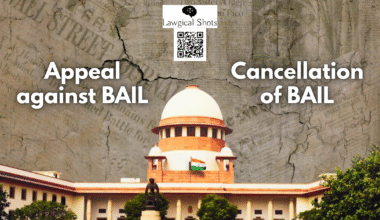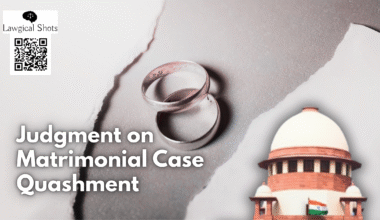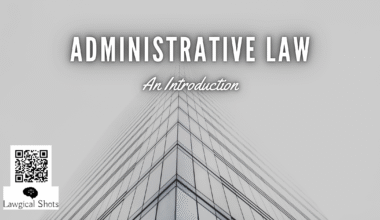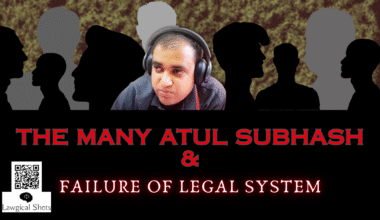Should a person holding the position of the Prime Minister, Chief Minister, or Minister facing serious criminal charges continue to hold office while in custody? It sounds more of a moral debate than political or constitutional. The 130th Constitutional Amendment Bill 2025 seeks to address this long-ignored gap. Introduced in the Lok Sabha by the Union Home Minister, Shri Amit Shah, the Bill proposes a clear legal framework for removing Ministers and even the Prime Minister or Chief Ministers who remain in custody for serious criminal offences.
As the Bill aims to resolve a key constitutional issue of the country, it has been the centre of serious debates and discussions, which makes it essential to be understood.
130th Constitutional Amendment Bill 2025: Key Provisions
The Constitution 130th Amendment Bill amends Articles 75(5), 164(4), and 239AA(4) of the Constitution. These provisions deal with the tenure and responsibilities of Union and State Ministers, as well as Ministers in the Government of the National Capital Territory of Delhi.
At the Union level (Article 75)
- Bill inserts clause 5(A) which states, if a Union Minister is arrested and detained in police or Judicial Custody for 30 consecutive days, on allegations of committing an offence punishable with imprisonment of five years or more, the President shall remove the Minister from office on the advice of the Prime Minister by the 31st day.
- If such advice is not given by the Prime Minister within that time, the Minister automatically ceases to hold office from the very day.
- For the Prime Minister, the Bill says he/she must resign by the 31st day; otherwise, he/she automatically ceases to be Prime Minister from the very day.
- It may be noted that the 130th Constitution Amendment Bill does not prevent such Union Minister or Prime Minister from subsequent appointment on their release from custody.
At the State level (Article 164)
- The Bill inserts clause 4(A) which applies same rule to Chief Ministers and Ministers in States. In case of being arrested or detained on allegations of committing an offence punishable with imprisonment of 5 years or more, he/she may be removed from office by the 31st day. Here, the Governor acts on the advice of the Chief Minister.
- If there is no such advice by the Chief Minister by the 31st day, he/she ceases to be a Minister from the very next day.
- If a Chief Minister is detained for 30 days for offence punishable with 5 years of imprisonment or more, resignation is mandatory; otherwise, automatic cessation follows.
- Here again, there is no hindrance on such State Minister or Chief Minister being subsequently appointed so on their release from custody.
For the NCT of Delhi (Article 239AA)
- The Bill inserts clause 5(A), which extended to the Delhi Council of Ministers, where the President acts on the advice of the Chief Minister. In case of such Minister holding the office is arrested or detained in custody, allegedly for an offence punishable with imprisonment of 5 years or more, the Chief Minister has to act by the 31st day for removal of such Minister.
- There is automatic cessation of office of the Minister in case the Delhi Chief Minister does not act by the 31st day.
- In case the one arrested or detained beyond 30 days is the Delhi Chief Minister, he/she has to tender resignation by the 31st day. If not done, he/she ceases to be the Delhi Chief Minister from the very next day.
Scope for Reappointment of Ministers
The Bill clarifies that once released from custody, the concerned individual can be reappointed, keeping open the door for political rehabilitation if later acquitted.
Why This 130th Constitution Amendment?
Reasoning behind the bill is to acknowledge that:
- Ministers represent the hopes and aspirations of the people.
- Their conduct must be “beyond any ray of suspicion.”
- At present, there is no explicit constitutional mechanism to deal with a situation where a Minister faces prolonged custody due to serious criminal allegations.
- A very recent and prominent example of this was Delhi Chief Minister who was in custody for a considerable period and refused to resign from his position, even claiming to run the National Capital from within the jail premises. However, he eventually had to sacrifice the chair to Atishi Singh.
Implications for Indian Democracy
- Strengthening Accountability
The 130th Constitutional Amendment Bill 2025reinforces the principle that holding high constitutional office does not prevent individuals from criminal liability. - Curbing Criminalisation in Politics
With rising number of criminal charges against MPs and MLAs, this Bill directly tackles the concern that individuals in custody should not govern the Country or States. - Checks and Balances
By mandating removal or resignation after 30 days in custody, the amendment seeks to reduce the scope for political manipulation or indefinite delay.
Other Side of the Coin
In recent years, it can be seen that those politicians facing criminal charges belong to parties other than the one in power. If the 130th Constitution Amendment Bill is passed, it will further empower those belonging to the party in power in the Union Government. The statement is not shallow or casual but seeks evidence from the previous Ministers of Delhi and Jharkhand, West Bengal, Maharashtra, etc. While Police authorities are responsible for criminal investigation, they are also subject to those in power. Hence, the amendment, though seemingly aimed to empower democracy, holds the scope to challenge it.
Conclusion
The 130th Constitutional Amendment Bill, 2025 marks a historic moment in the evolution of constitutional governance in India. It tries give a strong message for liability and trust in public office and governance.
At the same time, success of this Bill will depend on its fair and impartial implementation. Currently the bill is referred to the Joint Parliamentary Committee. If this amendment is passed, it will be remembered as a milestone in strengthening democratic accountability in India by ensuring that those who govern do so with integrity, not under the shadow of criminal suspicion, but embracing transparency.








